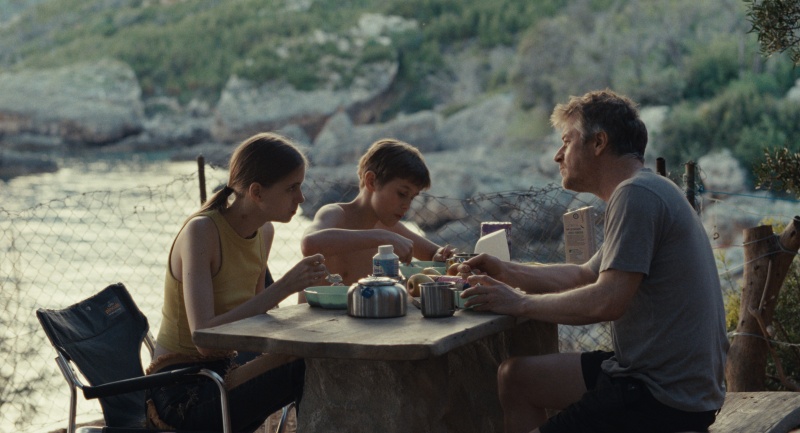
‘Ungrateful Beings’ San Sebastian Review: A Family Drama with No One to Care About
Slovenian director Olmo Omerzu aims for a family thriller, but the result is a credibility-straining mix of weak dialogue and unbearable characters.
A film about the fraught relationship between separated parents and their troubled teenage children, Ungrateful Beings is a failed attempt at mixing drama and thriller from the Slovenian director of Winter Flies. Spoken mostly in very basic English —only the father, who’s British, handles it well— the dialogue is pared down to the most obvious exchanges, reducing the film to a tense family drama about parents who don’t know how to deal with a daughter suffering from an anorexia-like eating disorder.
The father, David (Barry Ward), is camping with his kids Theo (Antonin Chmela) and Klara (Dexter Franc) on a beach on the Adriatic coast of Croatia, staying in a kind of hotel-campsite hybrid. The separation has clearly hit Klara hard: she’s angry, cruel, constantly on edge, and refuses to eat. Either she won’t touch food, or she secretly spits out whatever she pretends to swallow. David insists, scolds her, but ultimately doesn’t do much about it. The younger Theo gets annoyed or drifts off on his own. Their mother (Barbora Bobulova), heard only over the phone at first, worries from a distance. Adding to the odd dynamic, David insists on speaking English with everyone, even though the kids and their mother are —if I understood correctly— Czech.
Things seem to ease up slightly when the irritable and irritating Klara —a character who, troubled or not, is written with almost no redeeming qualities— meets Denis (Timon Šturbej), a local fisherman. She falls for him instantly (he has his own family baggage), begins to eat again, and even manages the occasional smile. But her father often doesn’t know where she is, sparking frequent arguments. The situation spirals when Denis’s father turns up dead, Denis himself goes on the run (accused of killing him), and Klara plunges deeper into starvation, to the point where hospitalization is necessary.

The rest of the film follows the parents —the mother now showing up in person, distressed— as they try to coax Klara back into eating, into life, into stopping her endless aggression and accusations. Their methods are, let’s say, questionable. Meanwhile, Theo, the youngest, is almost completely sidelined, which, as anyone familiar with family dramas knows, is never a good omen. Especially in a family seemingly obsessed with tearing one another apart.
A divorce drama in which the kids act out through increasingly extreme behavior to capture the attention of parents they believe don’t care for them, Ungrateful Beings runs into the serious problem of not offering a single remotely tolerable character. The father is a mess, the mother only slightly less so, and the kids come off more like caricatures of spoiled teenagers than recognizably human figures.
The story soon veers into at best “unrealistic” territory, as the parents begin manipulating situations under the pretense of saving a daughter who constantly seems on the verge of self-harm or suicide. Among the film’s many flaws —its credibility issues, clumsy dialogue, weak performances— perhaps the most damaging is that Klara herself is, for lack of a kinder word, unbearable. The script could have gained some depth by giving her at least a sliver of humanity, something that might spark empathy. But that never arrives. By the end, one is left with the impression that, ironic or not, the title actually fits.



